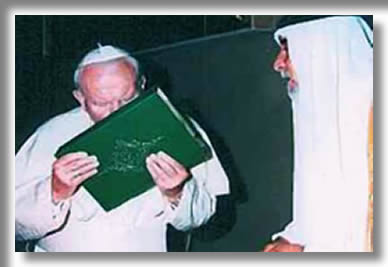
As Christians, we are all familiar with the truth concerning the Son’s essential equality (homo-ousios) with the Father. Christ is the exact representation of the Father’s glory, and therefore, by beholding the glory of Christ, we also behold the nature and glory of the Father Himself:
John 14:8-9: 8 Philip *said to Him, “Lord, show us the Father, and it is enough for us.”9 Jesus *said to him, “Have I been so long with you, and yet you have not come to know Me, Philip? He who has seen Me has seen the Father; how do you say, ‘Show us the Father’?
John 1:18 No man has seen God at any time; the only begotten God, who is in the bosom of the Father, He has explained [exegesato] Him.
There is also another text which speaks to the same issue, but with a slight distinction: John 17:6 “I manifested Thy name to the men whom Thou gavest Me out of the world; Thine they were, and Thou gavest them to Me, and they have kept Thy word. It is in this very prayer of our Great High Priest that we are given a fascinating declaration. The Son not only made the Father known (John 14:8-9) and explained Him (John 1:18), but Christ also says that He revealed the Father’s name as well (John 17:6). We must be careful not to miss this important distinction, after all, what is somewhat alien to our American culture is the very concept of a name: in ancient biblical cultures, names were designed to communicate the nature and attributes of the individual. It is for this reason that the names of God are crucial theological studies by themselves. For the sake of argument, consider the following examples from the O.T.:
El-Shaddai: In Genesis 17:1-5 the Lord promised that 99 year old patriarch (Abram) that he would become the father of a multitude of nations. What would seem to be an impossible promise (humanly speaking) was in fact secured by the very name that the Lord gave Himself in the presence of Abram, who was “good as dead” (Romans 4:19): El-Shaddai ~ God Almighty. By this name, Abram was assured that the very promise that was given would be brought about by the One who had “all might” or omnipotence. The Lord’s name was therefore supplied as the very foundation of hope for the promise that was given.
Jehovah-Jire: In Genesis 22 Abraham is given a substitute (a sacrificial ram) to offer in the place of his son of promise: Isaac. It is here that Abraham referred to the Lord as Jehovah-Jire – The Lord Will Provide.
Clearly, Christ is the living fulfillment of these names in that He is the true source of blessing unto the nations (Gal. 3) and He is the Father’s provision who would die as our sacrificial substitute. Ultimately, we should view these concepts as simply different facets of the same diamond of revelation. In the person of Christ we have complete revelation and knowledge of  the Father in all His perfections and attributes. He has manifested the Father’s name indeed.
the Father in all His perfections and attributes. He has manifested the Father’s name indeed.
These important truths stand in judgment against a recent revelation offered by a Dutch Catholic bishop, who (as one reporter summarized): “suggested that Christians should refer to God as ‘Allah’ to promote better relations with Muslims. Bishop Martinus “Tiny” Muskens of Breda told the “Network” television show that ‘God doesn’t really care how we address Him.’ The Dutch bishop admitted that his suggestion was not likely to gain widespread acceptance. But he predicted that within a century or two, Dutch Catholics would be addressing prayers to ‘Allah.'”
“Tiny’s” concept of ecumenism is not new. We saw it when Pope Benedict went to Istanbul’s Blue Mosque and prayed towards Mecca. We also saw  it when a small delegation of Muslims from Iraq visited Pope John Paul II (May of 1999) and presented him with a copy of the Qur’an. When it was presented to the Pope, he proceeded to kiss it as a sign of respect. We also see calls to ecumenism from men like Peter Kreeft who said in his book Ecumenical Jihad:
it when a small delegation of Muslims from Iraq visited Pope John Paul II (May of 1999) and presented him with a copy of the Qur’an. When it was presented to the Pope, he proceeded to kiss it as a sign of respect. We also see calls to ecumenism from men like Peter Kreeft who said in his book Ecumenical Jihad:
“God is raising an army, forging a new alliance of all who hate evil. This new alliance may prove to be more unifying than anything else in the history of religions. Perhaps all the world’s religions will eventually be united in this cause; but so far, in the West, we can see this army being made up of five religious groups, all of which are consistently vilified and libeled in the establishment media because they are the only five identifiable groups in our society who have not brought into the sexual revolution and its offspring, abortion: orthodox Catholics, Evangelical and Fundamentalist Protestants, Muslims, religious Jews, and Eastern Orthodox. Perhaps these five kings of orthodoxy are the five good kings of the Battle of Armageddon?”
With the rising pressures of ecumenism in our world today, I believe that it is all the more important that Christians address this question: “should we refer to the Lord as ‘Allah’?” Allāh is a contraction of the Arabic article al [the] + ilah [deity]: thus, al-lāh ~ or “the God.” While modern Arabic has adopted various words from the Semitic family of languages,[1] such similarities must not be overrated.
Lexical Consideration: In Hebrew – “the God” would be rendered – Ha-Eloah [even Ha-El or Elohey] – not “Allāh” per se. Even if one could argue that the name of Allah is an exact derivation from the Hebrew, it would still be necessary to distinguish between false and true deity. The Scriptures do this constantly – Exodus 20:2-3: 2 “I am the Lord your God, who brought you out of the land of Egypt, out of the house of slavery. 3 “You shall have no other gods before Me.”
Theological Considerations: Despite the insistence of some Muslims that “Allāh” is not used as a name, it must be noted that their nominal use of “Allāh” points to another reality: Sura 1:1. “In the name of Allah, Most Gracious, Most Merciful.” Because of the uniqueness of this identity, the name of Allah should be avoided. Islam teaches that Allah’s chief prophet is Muhammad, and that he is the last prophet amidst the legacy of prophets in the OT and the NT. They believe that only those who embrace Islam truly understand the teachings of Moses and of Jesus. They also teach that Muhammad is the fulfillment of John 16:12-13, rather than the Holy Spirit. By calling God “Allah” confounds absolutely everything.
Christological Considerations: The Qur’an clearly denies the Trinity (Qur’an 4:171)[2] and the crucifixion of Jesus Christ (4:157)[3] – two of the most central tenants of Christian faith, and yet many today (whether by ignorance, or by fantasy-chasing) have advanced the idea of Islam being favorable towards the Christian faith. Sura 9:30. “…the Christians call Christ the son of Allah. That is a saying from their mouth; (in this) they but imitate what the unbelievers of old used to say. Allah’s curse be on them: how they are deluded away from the Truth!”
I would suggest to Biship “Tiny” an alternative to his compromise – Jehovah-Qanna:
Exodus 34:14: 14 —for you shall not worship any other god, for the Lord, whose name is Jealous, is a jealous God—
God does care about what we call Him, and therefore we must not trifle with such things. The Savior Himself sacrificed all in order to manifest the precious name of the Father throughout His life and ministry. May we as Christians be careful to communicate the glory of God’s name, rather than merging His precious name with the false religions of this world.
[1] Arabic and Amharic are more recent members of the Semitic family of languages, and therefore they do contain reflections of Hebrew and Aramaic.
[2] Say not “Trinity”: desist: it will be better for you: for Allah is one Allah: Glory be to Him: (far exalted is He) above having a son. To Him belong all things in the heavens and on earth. And enough is Allah as a Disposer of affairs.
[3] That they said (in boast), “We killed Christ Jesus the son of Mary, the Apostle of Allah”—but they killed him not, nor crucified him, but so it was made to appear to them, and those who differ therein are full of doubts, with no (certain) knowledge, but only conjecture to follow, for of a surety they killed him not—“.
